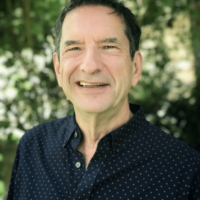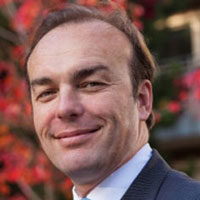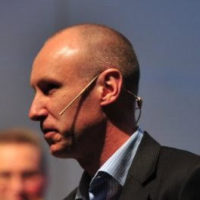Leadership today, especially in the top levels of politics and government, is a hard place to be. As a society, we have become increasingly polarized – liberal vs. conservative, progressive vs. traditionalist. Here in the U.S., political campaigns have become primarily about attacking the opponent rather than offering meaningful visions and effective strategies. Once elected, the criticism and harsh attacks usually continue, and more recently, seem to escalate. I suspect that some variation of this social condition exists in other democratic countries as well.
This reality concerns me on two levels. First, I can’t imagine what it is like to get out of bed in the morning knowing that, regardless of what I say or do, I will be harshly criticized. It’s one thing to be challenged, quite another to be viciously attacked. Imagine the personal walls of defense those in high public office have to build up just for survival.
Second, we have created a culture where truly gifted leaders with a strong commitment to service are looking at the system and saying, “No way am I putting myself out there.” The dysfunction of the system itself keeps gifted and talented new leaders from stepping forward in public service.
A year ago I had the privilege of co-leading an “Essence of Leadership” day in The Netherlands with Otto Scharmer, author of Theory U and Leading from the Emerging Future. Otto speaks about moving from an ego-system awareness to an eco-system awareness. As he defines it, “Ego-system awareness means paying attention to the well-being of oneself. Eco-system awareness means focusing on the well-being of oneself and of the whole (all the stakeholders and the system, including nature).”
In a recent Huffington Post article, Otto quoted Bill O’Brien, the late CEO of Hanover Insurance:
“The success of an intervention depends on the interior condition of the intervener.”
Otto went on to write, “When I heard this I thought, Wow! He claims that what matters most is not what leaders do or how they do it, but the inner place from which they operate – i.e., the quality of awareness and consciousness that they bring to a situation.”
These statements from Bill O’Brien and Otto Scharmer assume that the leader is the intervener. However, that’s not always the case. It seems to me that one of the most significant interventions needed in today’s democratic societies is to transform our relationship to those we elect to public office. And we, the people, are the ones to intervene. The transformation starts with us.
It’s up to us as citizens to create a system that supports and encourages an ethical, authentic interior condition for our leaders – a system that supports its leaders to be the best that they can be, to be in touch with their hearts, to be aware of the greater whole, and to remember why they chose to serve the public in the first place. We may or may not agree with their politics, but we can still support them as fellow human beings.
In a democracy, the people are the creators of the social system. The leaders we elect, the actions they take, and the policies they set, are mirrors of the mass consciousness.
Therefore, transformation of the social system begins with asking, “What is our interior condition?” Are we coming from a place of integrity? Are we voicing opinions and offering alternatives in constructive and helpful ways that can be heard? It is easy to stand on the sidelines and criticize, yet just how constructive is that? How does that encourage and support the leader to make choices and decisions that serve a greater whole?
My invitation is to a bigger conversation – to step beyond personal opinions and political affiliations, agreement or disagreement, and enter into constructive dialogue where ideas are shared, differences are considered, and a conscious effort is made to find the path forward that we can walk together. This is civil discourse. Through this process, we learn much more about one another and about ourselves, and we gain deeper understanding about why someone else is as committed to their view as we are to ours. When we can respect the human dignity and essence of the leader and of one another, we have a chance of finding the middle place where we can meet.
I acknowledge that this is not necessarily the easy road. Things will not always go the way we would like for them to go. And I admit that when I find myself in a group conversation about politics and government, if I’m not careful, I, too, can get caught up in the non-productive wave of criticism. It’s easy to get pulled in. Yet when that happens, I come away feeling disheartened and conflicted inside because, in popular jargon, I’ve just “thrown that leader under the bus.” I haven’t offered anything positive to move things forward. In fact, I’ve just contributed to the dysfunctional system. I don’t want to do that anymore. I’ve made a commitment to do my part to start turning the system around. What about you?
I admit that I want the people who hold leadership positions to come from an eco-awareness. I want them to live and breathe a deep understanding that everything is connected to everything else. I want them to consider a greater good as they govern and set policies.
Therefore, part of my job as a citizen is to support their interior condition, not just focus on their outer actions – to hold space for them to govern from their hearts as well as from their heads. And if I’m going to support their interior condition, I must first be aware of mine.
P.S. If you are looking for support for your own interior condition or want to understand more fully how you can support the interior conditions of others, you might spend some time with my latest book, Create A World That Works. The book is also available in digital format for Kindle, iBooks, Nook, and most other e-reading formats.
If you enjoyed this blog post and found it helpful or inspiring, I invite you to subscribe to our free weekly newsletter by clicking here.





































